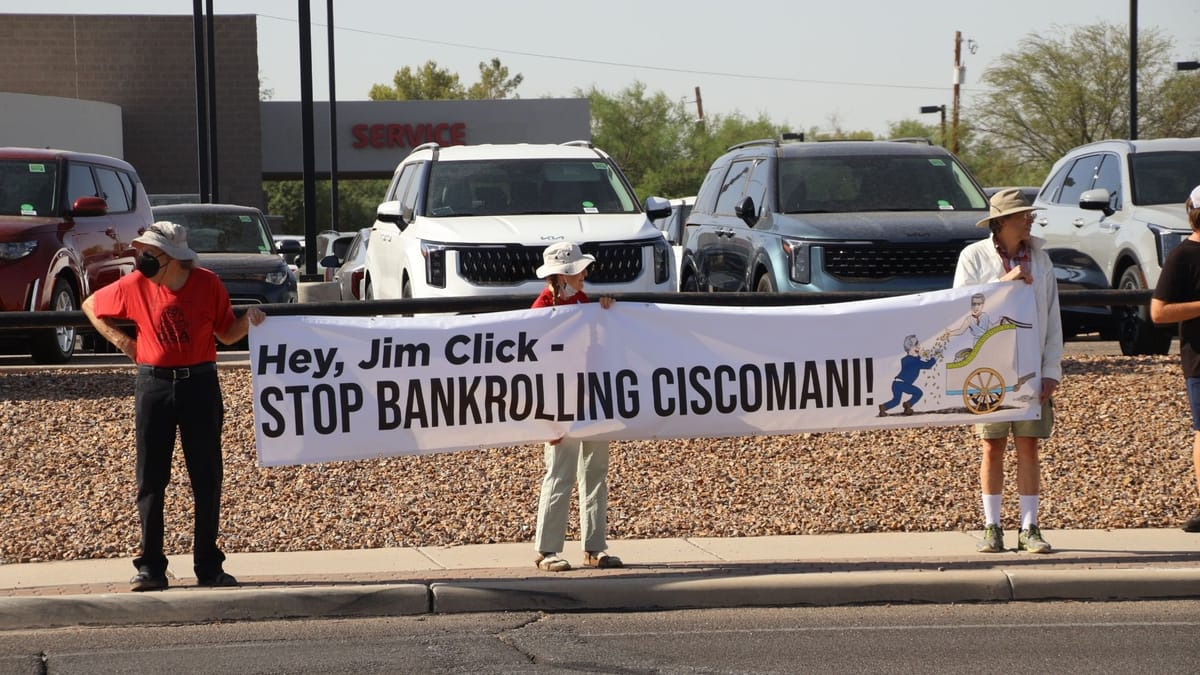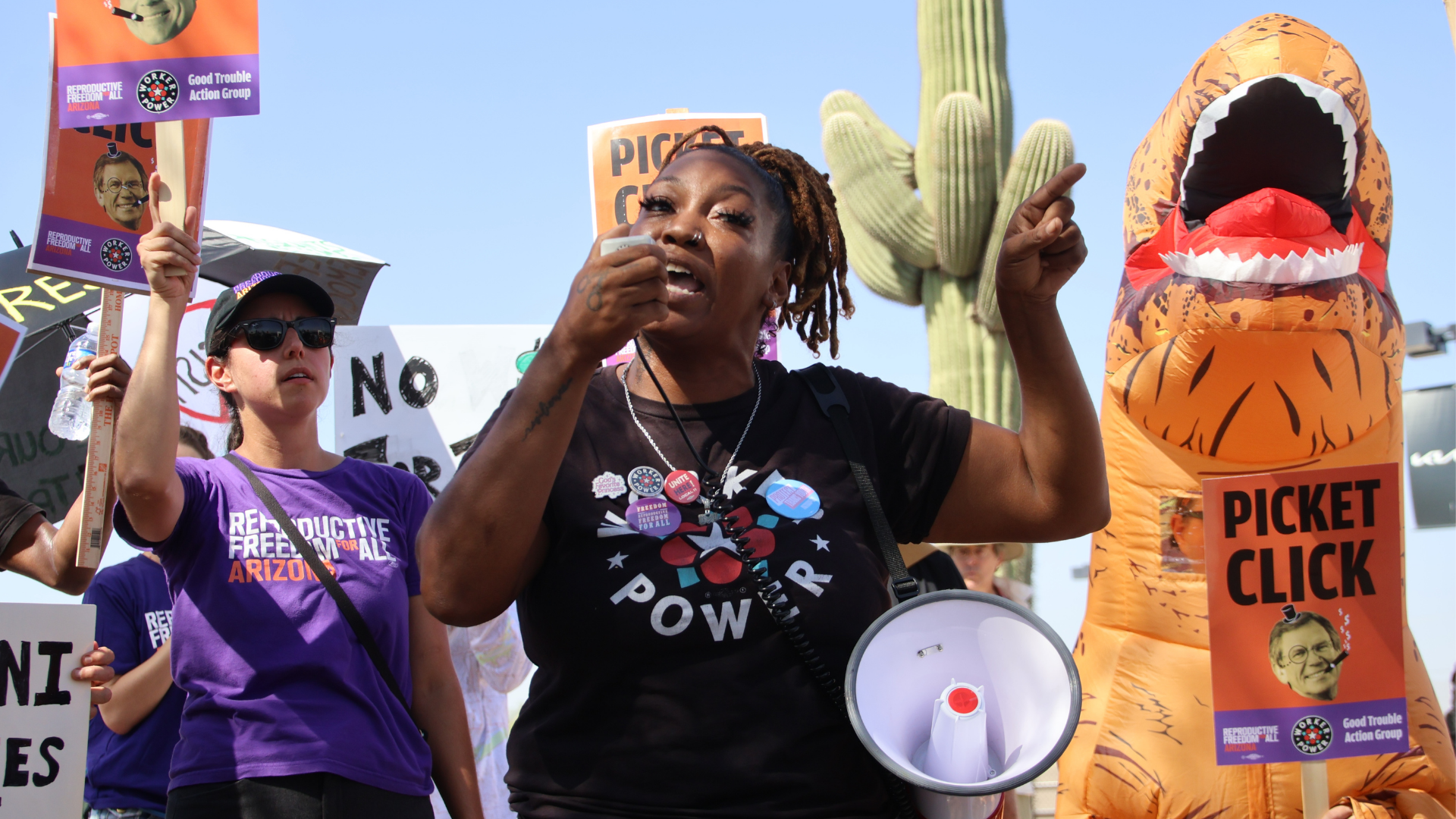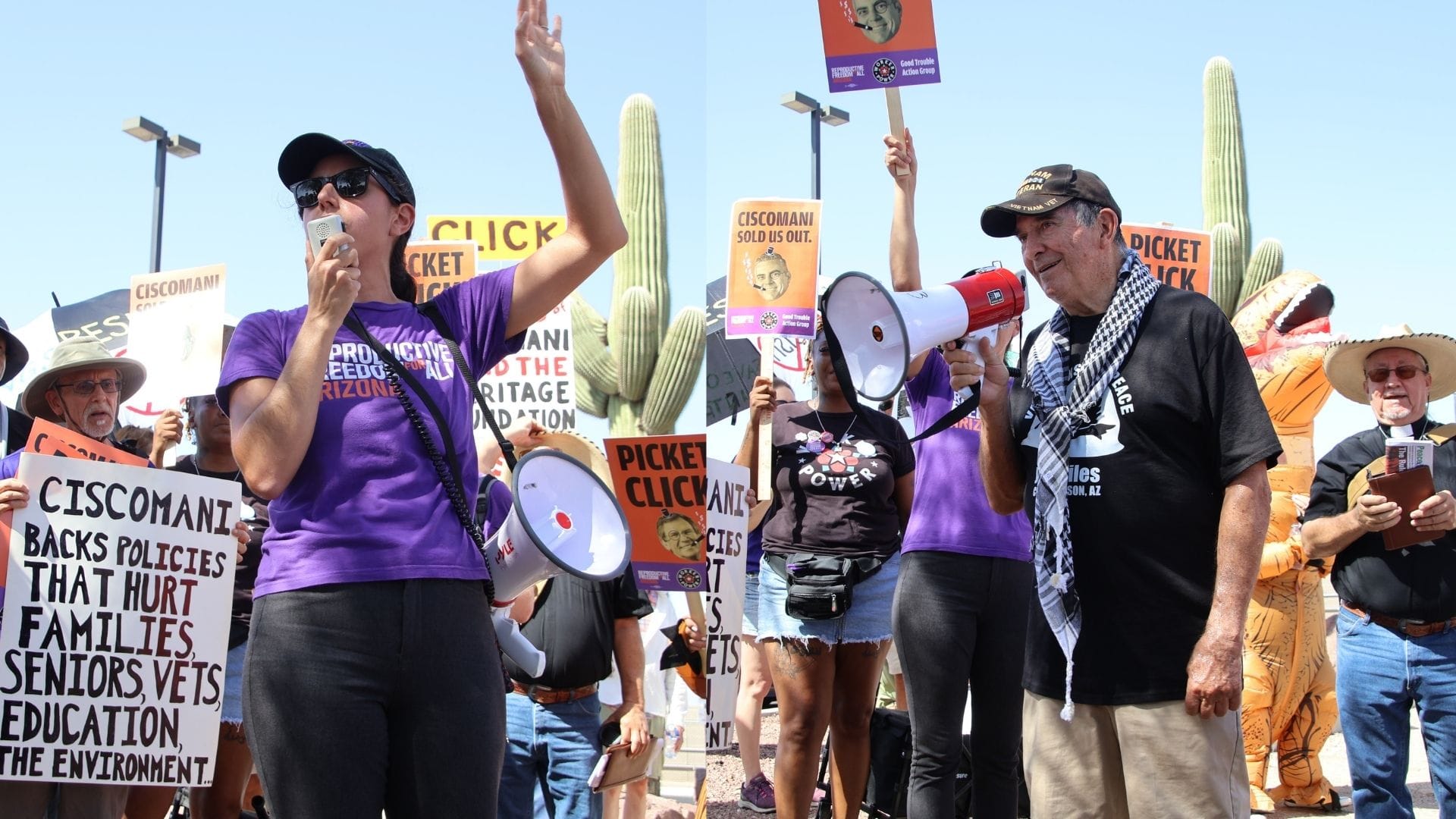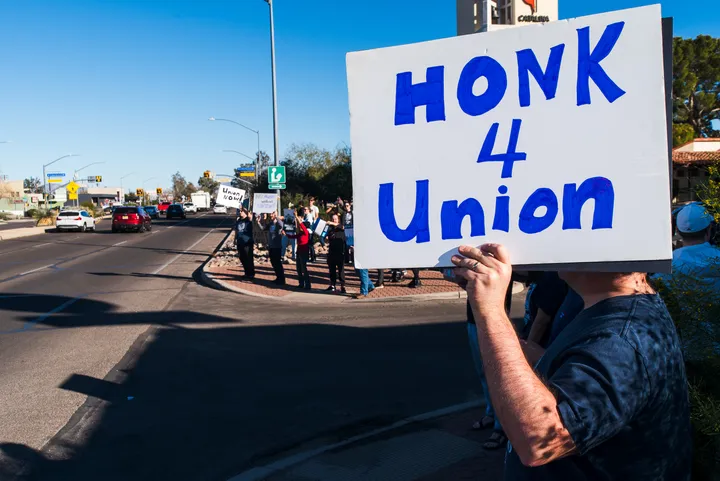Tucson protesters take aim at political backers
Tucson activists are shifting their focus from protesting U.S. Rep. Juan Ciscomani’s policies to challenging the financial backers who support his campaigns.

In a sign of escalating civic engagement, activists in Tucson are no longer limiting their protests to politicians and policies. They are turning their attention to the financial backers who help keep those politicians in power.
On Aug. 23, more than 150 community members gathered outside Jim Click Kia to condemn the dealership’s donations to U.S. Rep. Juan Ciscomani’s 2024 campaign, marking a strategic shift toward holding donors accountable for the policies their money enables.
Ciscomani has faced scrutiny from his constituents for voting in favor of the “Big Beautiful Bill,” which proposed a $1 trillion cut to Medicare and Medicaid, translating to an estimated $89 million reduction in funding to the state's Medicaid system over 10 years. According to an August report, more than 280,000 Pima County residents rely on these programs.
While Ciscomani did send a letter to Congress urging the protection of Medicaid, he later defended his vote in support of the bill on X.
The bill “cracks down on fraud and abuse in Medicaid through common-sense work requirements and better eligibility checks,” Ciscomani wrote. “(This bill) is not perfect … But it includes many provisions that I know my constituents in southeastern Arizona support.”
In response, activist groups are broadening their efforts and challenging the donors who help fund his campaigns. Campaign finance records show that Jim Click Automotive donated $70,000 to Ciscomani’s campaign during the last election cycle, the largest individual contribution to his campaign.
Organizers say this strategy of targeting a representative’s financial supporters as a form of protest is inspired by the themes of a larger, nonviolent protest movement. The social welfare group Worker Power draws inspiration from union organizing and nonviolent direct action as strategies for civic engagement and advocacy for policies that promote equity.
Nonviolent direct action is guided by principles that foster mutual respect, acknowledge that unjust decisions often stem from larger systems, and aim to build a community that educates and transforms.

Marissa Sanders has been involved with Worker Power for nearly two years and has been engaged in similar activist work since 2011.
“Time after time we see these politicians taking advantage of their position,” she said. “We have Jim Click bankrolling Ciscomani while he signs the big bad bill, which is stripping our rights from underneath us.”
Sanders became homeless for the third time three years ago. With two children, one of whom is autistic, she says cuts to the state’s Medicaid program will likely affect the health care access her family relies on.
She said she feels empowered knowing her story is not unique and that others, both in similar situations and beyond, are also pushing for change.
“I learned that I am not alone. We're just making sure that we can keep our Medicaid, fight for our vets, fight for our bodies, (and) fight for our human rights,” she said.
Sanders knows not everyone aligns with her mission and is no stranger to facing opposition at protests. She said that if counter-protesters assert themselves, a direct, nonviolent response would be to ground herself in her objective and ignore people disrupting the cause.
“The whole purpose of the nonviolence training is just to make sure (we), and all of our people are safe, and that we don't lose focus on what we're here to do," Sanders said.
Athena Salman, director of Arizona Campaigns for Reproductive Freedom for All and a former state representative, was also present at the protest alongside members of her group’s campaign.
“We understand (Jim Click) is responsible for people like Ciscomani, who voted to defund Planned Parenthood less than a year after Arizonans codified to enshrine the fundamental right to the Arizona Constitution,” Salman said. “We're letting Jim know that you need to stop electing bad citizens.”

Critics say this pattern of political spending has long enabled lawmakers to act without accountability.
“The reason that corrupt politicians like Ciscomani are able to get away with what they're doing is because they don't think that the people of Arizona are going to notice,” Salman said. “For decades, (Jim Click has) been funding Republican politicians that have been chipping away at Arizona's rights and freedoms, including their reproductive freedom. It's time to put people like Jim on notice and let him know that we're watching. People need to let their voices be heard.”
Jim Driscoll, a representative of the Good Trouble Action Group, said he opposes several positions Ciscomani has taken.
“It's a part of what nationally is going to have to be a move towards non-cooperation on a large scale,” Driscoll said. “We picked a local guy that's more reachable, (and has a) carefully curated reputation as a philanthropist, as a good businessman. He gives away a tiny fraction of what he's taken from the people of Tucson.”
A Vietnam veteran, Driscoll has also organized nonviolent protests outside of the V.A. starting in March in response to the federal government massively laying off V.A. employees.
A large catalyst for more frequent nonviolent protests across the country is the 3.5% rule, developed by political scientist Erica Chenoweth, which states that if 3.5% of a country’s population protested nonviolently against a government, that government is likely to fall from power.
The 3.5% rule has gained traction this year, along with movements using nonviolent forms of protest, such as the local Tesla, No Kings, and “Death to Democracy” demonstrations.
“We've tried everything else. In the logic of nonviolent resistance you try and communicate with him, but he's not responding. Now you say, ‘Okay, how do we make them respond?’ and we go to the people who are funding him,” Driscoll said. “I can't tell you how many times we've written them letters. We've gone to visit his office. It was a logical kind of progression, and the movement nationally is headed in that direction.”
Topacio “Topaz” Servellon is a freelance journalist based in Tucson. Contact them at topacioserve@gmail.com.
Tucson Spotlight is a community-based newsroom that provides paid opportunities for students and rising journalists in Southern Arizona. Please consider supporting our work with a tax-deductible donation.



